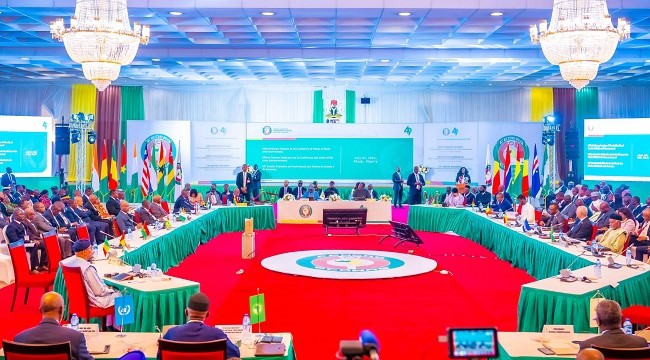Historic Payment
Nigeria has settled its outstanding debt with the Economic Community of West African States (ECOWAS), paying ₦85 billion. This revelation came from Omar Touray, the President of the ECOWAS Commission, during the opening remarks at the 66th Ordinary Session of the ECOWAS Authority of Heads of State and Government in Abuja.
Acknowledgment of Nigeria’s Contribution
Touray highlighted that this payment marks a significant milestone, being the first time in 19 years that Nigeria has fully met its ECOWAS levy obligations. He praised President Bola Tinubu and the Nigerian government for their commitment to the regional body, particularly noting that this payment covered levies from 2023 up until July 2024.
Leadership and Regional Cooperation
The ECOWAS President expressed gratitude for Nigeria’s contribution, seeing it as a vote of confidence in the ECOWAS leadership. Touray also acknowledged the efforts of the outgoing Ghanaian President, Nana Akufo-Addo, who was attending his last session as President of Ghana.
READ ALSO: ECOWAS Confirms Departure of Mali, Burkina Faso, and Niger in 2025
Economic and Political Impact
In his address, President Tinubu emphasized the importance of cooperation among ECOWAS member states to enhance the living standards of their citizens. He pointed out that economic cooperation within the region has been strengthened through ECOWAS policies. Tinubu commended Ghana and Senegal for their successful elections, promoting them as examples for regional democratic practices.
Tributes to Regional Leaders
Tinubu described Akufo-Addo as ‘Mr Democrat,’ applauding his leadership in allowing democratic processes to flourish in Ghana. This session not only served as a platform to discuss regional integration but also as an opportunity to recognize leaders who have contributed to the region’s political stability.
This payment by Nigeria is a significant gesture towards reinforcing the financial health and operational capabilities of ECOWAS, potentially setting a precedent for other member states to follow in fulfilling their financial commitments to the community.










